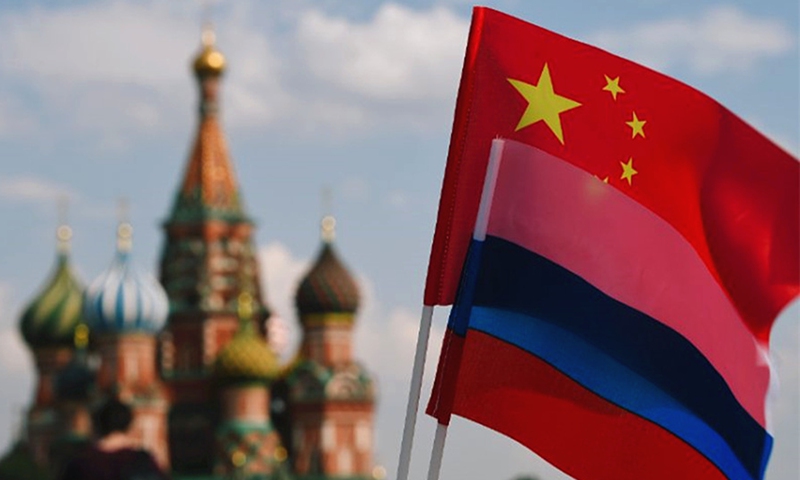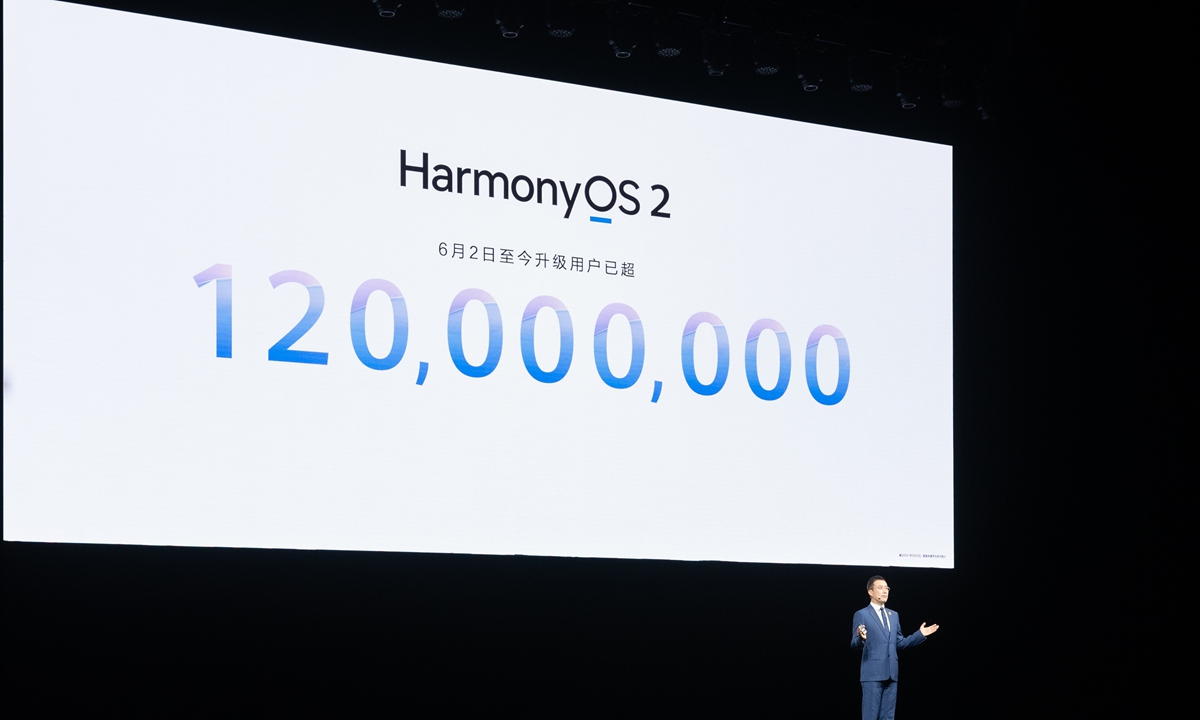
China Russia Photo:Xinhua

Huawei's HarmonyOS 2.0 reached another milestone on Thursday - 120 million devices
China and Russia said that they will continue in-depth cooperation on digital operating systems, including Russia's Aurora and Huawei's HarmonyOS and openEuler, charting a course to break the US monopoly in the sector as the global urgency of developing homegrown technology rises. The two also vowed to promote exchanges between companies from the two countries.
The initiative was released in a Joint Communique and cooperation documents that China and Russia jointly announced on Wednesday, after Chinese Premier Li Keqiang held the 26th regular meeting between the Chinese and Russian heads of government with Russian Prime Minister Mikhail Mishustin via video conference on Tuesday.
Speaking at the event, Li noted that China and Russia, both major economies and emerging markets, share a strategic consensus on upholding multilateralism and safeguarding the international system with the UN at its core, and the international order based on international law.
According to the communique, apart from the operating systems, the two called for bilateral cooperation in a wide range of areas such as telecommunications, network security, energy, agriculture and technology, to ramp up partnership between the two countries.
Industry analysts said seeking broad consumer use of Huawei's operating system indicated Chinese central government's determination to promote the OS as a national industrial priority. Meanwhile, the strength of the two countries, namely their big markets, combined with Russia's world-renowned mathematics strength and China's software ability, will hopefully speed up the process of breaking new ground in the sector.
Huawei's HarmonyOS is used in many smart devices, Internet of Things terminals and industrial terminals, while openEuler will be used in servers, edge computing and cloud infrastructure.
Aurora, a mobile OS developed by Russia, is based on the open source Sailfish OS, and has been used by the country as the recommended OS for the government and state-backed companies due to its privacy and security features.
The latest initiative also comes as the Chinese and Russian science and technology sectors are facing a US crackdown, with barriers developing in many areas such as terminal OS and IT infrastructure OS.
HarmonyOS and openEuler have significant advantages that can support the development of the digital economies of China and Russia, Huang Haifeng, a veteran industry analyst, told the Global Times on Wednesday, indicating a great cooperation potential.
Applications of the HarmonyOS in Russia might start in some marginal areas such as home appliances, Huang said, noting that it might be difficult to use the OS on mobile phones in Russia, as mainstream smartphone brands such as Samsung, Xiaomi and Apple are dominated by neither iOS nor Android.
Mutual support between China and Russia in the sector may start from ecosystem construction, but whether there will be more in-depth development depends on future trends, Xiang Ligang, director-general of the Beijing-based Information Consumption Alliance, told the Global Times on Wednesday.
Huawei did not reply to an interview request from the Global Times asking about details of China-Russia cooperation in the area. But media reports showed that bilateral cooperation might have started years ago.
According to a report by Forbes in 2019, China was testing devices with "Aurora pre-installed," and Aurora was to be installed on "various" Huawei devices "instead of Google's Android system."
"Other than China and Russia, it's possible that more countries and regions may join forces in developing their own operating systems, as they're afraid of being suddenly sanctioned by the reckless US government," Xiang said.





